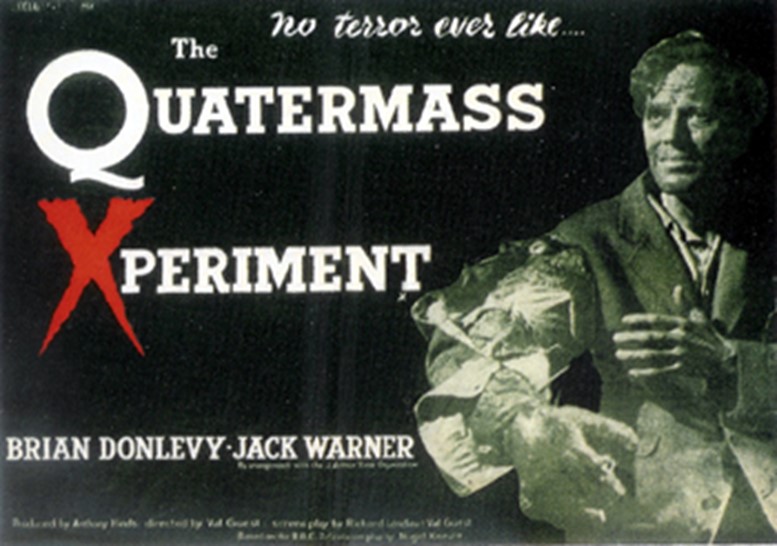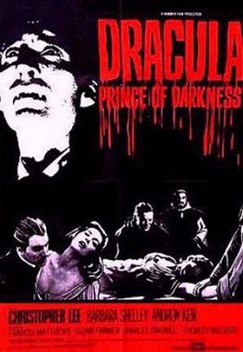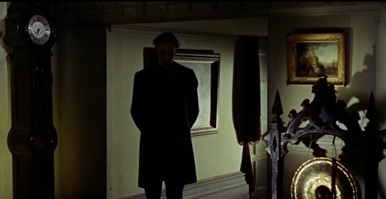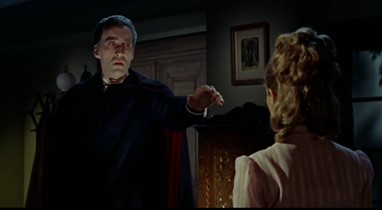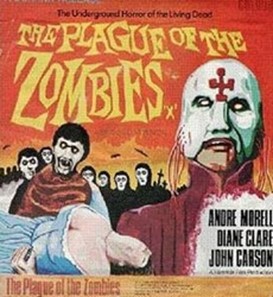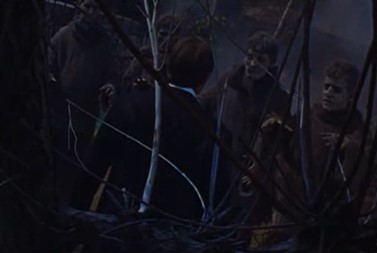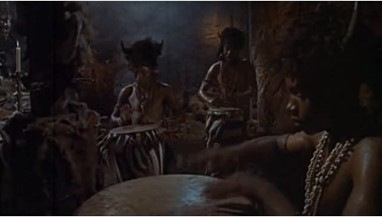
by Mx. Kris Vyas-Myall

World Cup excitement seems to have hit fever pitch in the UK. For the first time the international tournament is to be held in England and even non-sports fans, like me, are finding themselves caught up in the drama.

It has certainly been an eventful run up. Whether it be the trophy being lost and then found by a dog, or the CAF refusing to play over the number of pre-agreed qualifiers, it seems like there is always a new twist in the story.
Whilst, obviously, I am hopeful that England will do well, I personally expect it will be West Germany that will retake the title. However, the Soviet Union are not ones to count out, with a lot of expectation for them to do very well this time around.
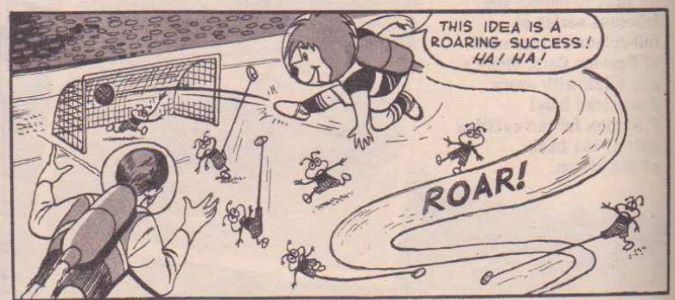
There are the even adventures of the mascot World Cup Willie appearing in TV Comic. This is not the only change happening right now in the world of British comics.
The Next Shift
Sometimes it seems the only constancy in British comics is change. Whilst there are some long running strips like Garth, Dan Dare and Roy of the Rovers, the contents of most magazines are largely revised every few years, whilst new comic books spring up and others merge.

Recent excellent new publications Ranger and Champion are both coming to an end, being incorporated into Look and Learn and Lion respectively. Whilst in Lion itself, the excellent long-running dystopian series, Vic Gunn, has been wrapped up, with Emperor Rudolph imprisoned in exile and democracy restored to Britain.
But rather than talk about what is disappearing I want to talk about a new trend that seems to be appearing. The return of British superheroes.
Super Absences
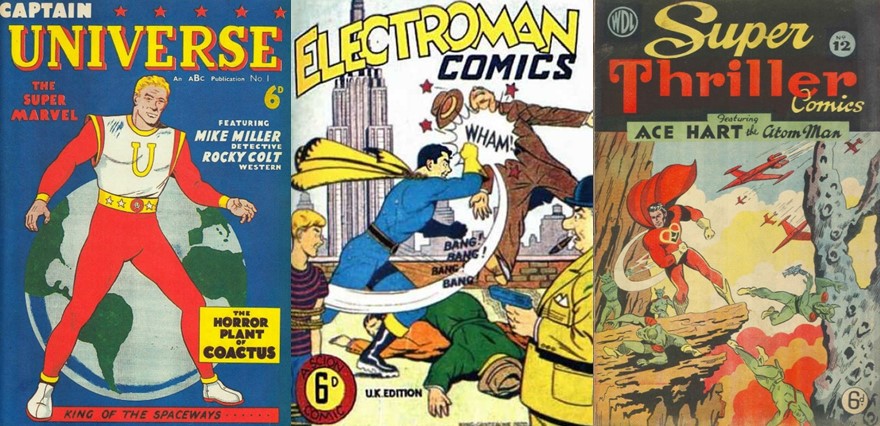
Following the arrival of American superhero comics on British shores (and their subsequent disappearance) there was short lived explosion British superhero comics. However, most did not last more than a few issues.
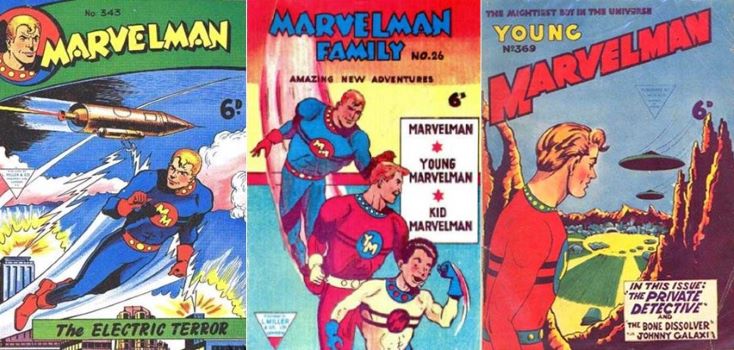
One of the few that stuck around was Mick Anglo’s Marvelman. Starting in 1954 , it was an intentional copy of Captain Marvel, designed to continue after the collapse of Fawcett comics in the US. However, even this ceased publication in 1963.
So, what remained of these kinds of marvels? Whilst British adventure comics moved to a mix of War, Crime, Sport, Science Fiction and Spy Stories, there are some which border on the superheroic.
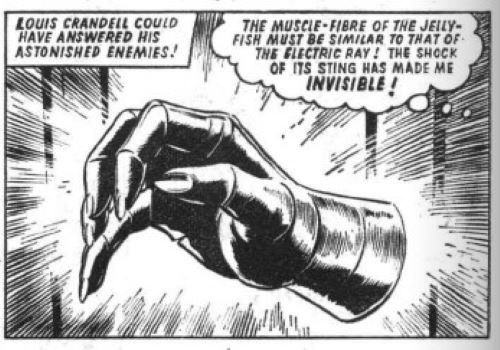
The biggest are more anti-heroes than heroes. Louis Crandell is The Steel Claw, who after he had a series of accidents, became able to turn invisible if electrocuted. After originally becoming a criminal for a time, he has now begun to work for The Shadow Squad of the British secret service. Another is The Spider, a technologically advanced supervillain, who often battles other violent supervillains but more for control than out of a sense of altruism. Neither strip feels much like a typical American style superhero tale.
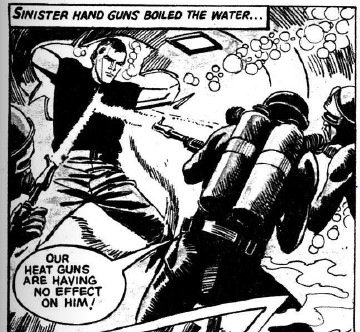
There are also some incredibly powerful robot titles such as Robot Archie and The Iron Man. In these the robot hereos will sometimes battle supervillains and display unusual powers.
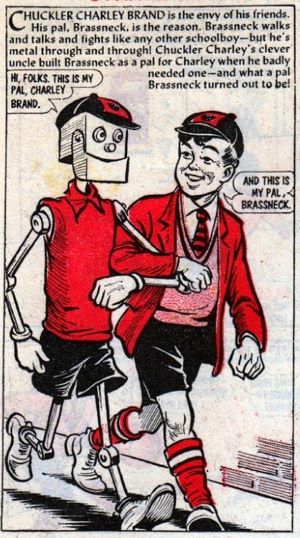
However, these feel as much science fiction and colonial adventure tales as superhero stories. Also, robots are generally a pretty common feature of British comics, even starring in schoolboy humour series, like The Tin Teacher or Brassneck.
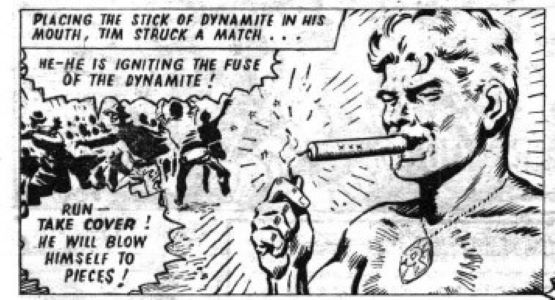
The closest hang-overs are probably Kelly’s Eye and Garth. In the former, Kelly has an amulet that makes him invulnerable while wearing it, allowing him to do outrageous deeds such as sitting on a lightning rod for charity. The stories are fairly repetitive and dull though, as they have to keep finding excuses to lose the eye temporarily, as a way of maintaining the tension.

In the latter, Garth is sometimes referred to as a superhero due to him being extremely strong, but his adventures tend to be more cosmic, much closer to a Flash Gordon or Buck Rogers character than Superman or Green Lantern.
Whilst there a few that could count, this set would make a very paltry Justice League of Britain. But we have just recently started to see the arrival of a new wave of British superheroes, who I am going to attempt to match with their American counterparts.
New Heroes
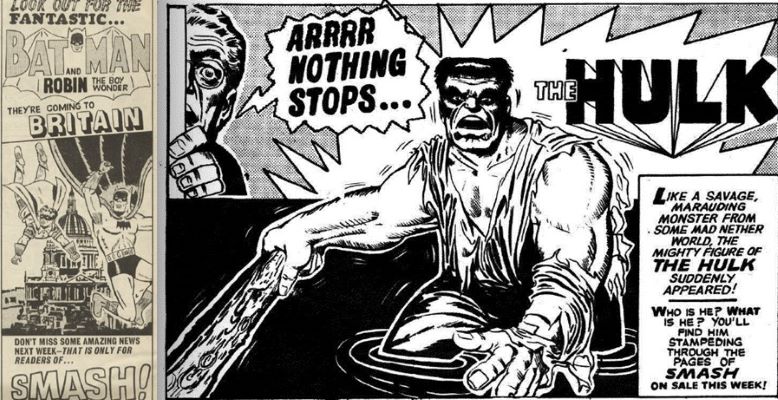
Smash! comic was designed to be primarily another humour comic building off the success of superstar artist Leo Baxendale’s Wham!, combining cheap parodies like The Man from B.U.N.G.L.E. and Danger Mouse, with rip-offs of D. C. Thompson characters such as Bad Penny and The Swots and the Blots. But recently there has been more of a shift. First off, they have started reprinting US superhero comics which are hard to come by on this side of the Atlantic. Secondly, they have also produced their own superhero strip, Rubber Man:
Britain’s Elongated Man – The Rubber Man
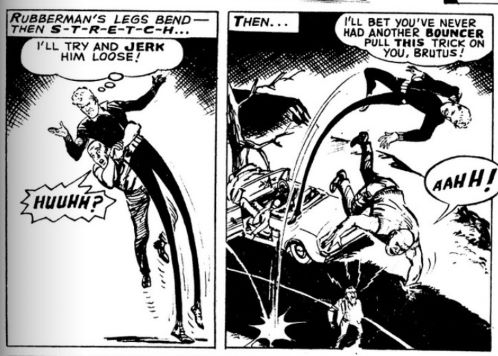
Cursed by an Indian Fakir, Jim Hollis finds himself able to stretch himself like rubber. The series has only just started but seems to be following the standard superhero formula, as we follow Jim becoming Rubberman and facing off against Jonas Sleech, a super strong villain.
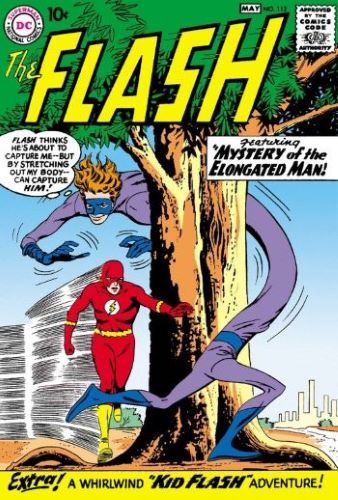
Apparently, these kinds of stretchy superheroes have been common in the US since Plastic Man appeared in the 1940s. However, I am reminded of the character I am most familiar with, National Comics Elongated Man, who appears in the pages of The Flash, with similar powers and even a similar look.
Britain’s Hourman – Thunderbolt The Avenger
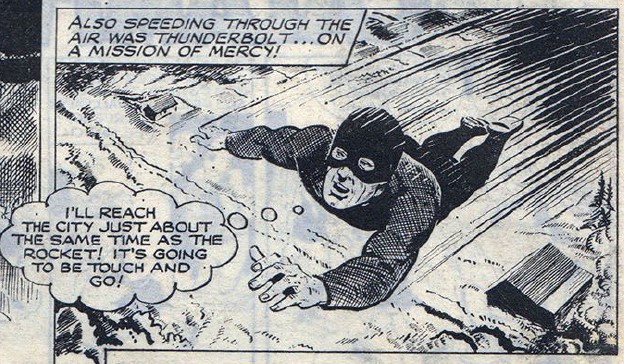
Mick Riley is a police constable considered too wimpy by his colleagues and consigned to desk duty. When escorting a Professor Markham he is given a wristwatch will give him a wide range of superhuman abilities but only for a period of 2 hours. With it he adopts the secret identity of Thunderbolt, a masked superhero.
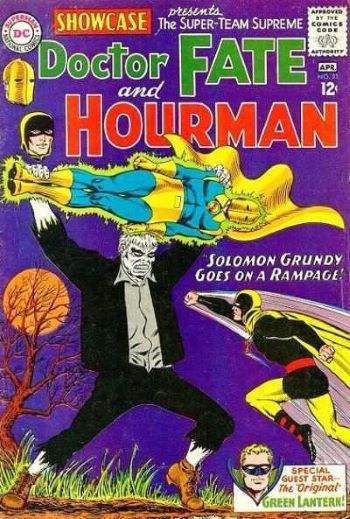
Thunderbolt seems most analogous to Hourman, recently revived in Showcase. He has his own source of power which gives him superhuman abilities for an hour. I would not be surprised if he was an inspiration on the Thunderbolt strip.
Britain’s Mera – Marina Girl of the Sea

Marina Girl of the Sea is a prequel to the Stingray TV series run in the Lady Penelope comic. Ostensibly we are told this will be the story of how the titular Marina became non-verbal, but it is more of a fantasy undersea epic about the Princess of Pacifica dealing with an invasion of her kingdom.
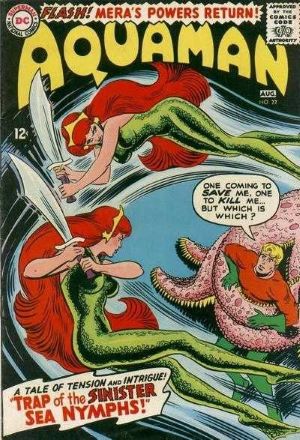
It could be argued whether this counts as a superhero tale, but I am definitely reminded of Mera in the Aquaman comics. These both share a sense of adventure and the mix of fantasy and undersea politics.
Britain’s Atom – The Mini-Men
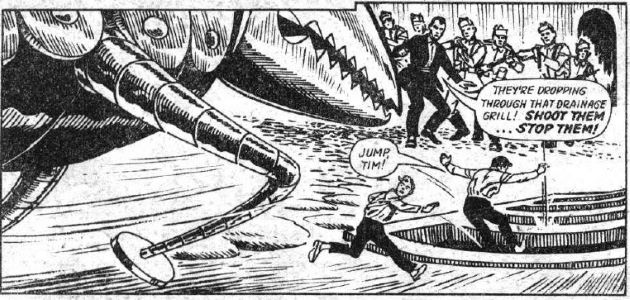
The two Mini-Men are secret agents Pete Stevens and Tim Bailey, shrunk by shrinking gas to only two inches. They are sent into Scarvia to rescue Professor Hannah from the dictator general Borgos, who is forcing him to work on deadly mechanical rodents.

These two bring to mind National Comics' own shrinking hero The Atom. Although he tends to be more focused on crimes than spy missions, these kinds of scientifically focused tales are very much part of his repertoire.
Britain’s Kid Flash – Billy Whizz
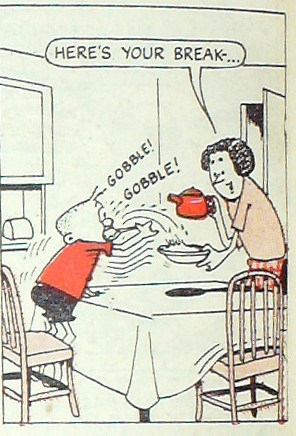
More of a humour strip than a straight superhero adventure, Billy Whizz follows the comical antics of an incredibly fast boy dealing with ordinary life and its travails.
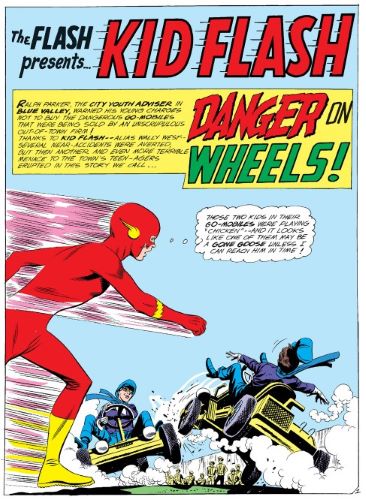
Whilst he is slightly older, I am definitely reminded of the Wally West as Kid Flash, appearing in back up strips in some issues of The Flash. These have often emphasized his youth and sometimes show him dealing with real-life problems in the midst of heroics.
Britain’s Beast Boy – The Amazing Jack Wonder
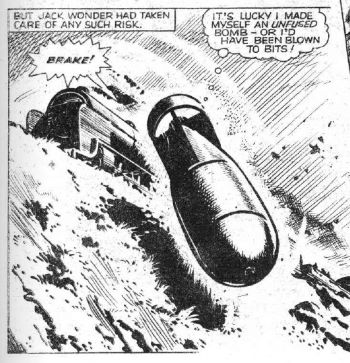
Jack Wonder is the result of another scientific experiment. The evil scientist Varan uses him as a guinea pig and the result allows Jack to transform into any object, whilst still retaining his sentience. As a “freedom loving adventurer”, he uses his power to fight the evil dictator Quantro.
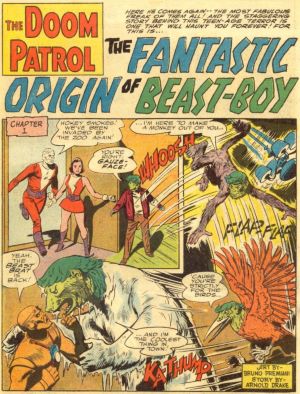
Jack Wonder most reminds of The Doom Patrol’s Beast Boy. Rather than being able to transform into any object, Beast Boy can transform into any animal. Both also have rather a great sense of fun and make their adventures a joy to read.
Britain’s Thor – The Phantom Viking
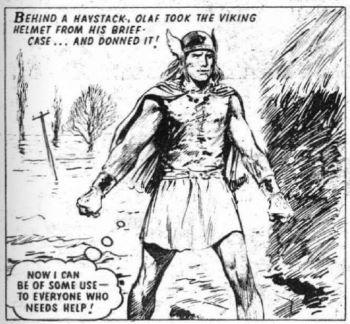
New magazine Champion has produced some really innovative strips such as Return of the Stormtroopers and Hunters Without Guns. One less inventive creation is The Phantom Viking. Here mild-mannered school-teacher Olaf Larsen discovers an ancient Viking helmet. When he puts it on, he transforms into a superhero with superhuman strength and the ability to fly. He decides to use this power to confront evil.
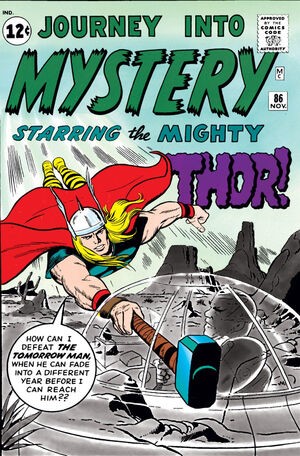
Anyone vaguely familiar with North American comics will probably be aware of how similar this is to the Marvel character of Thor. In fact, the Marvel readers I have shown the strip to have commented how much it looks like they resemble Jack Kirby’s illustrations. But then, I guess if you are going to copy, why not copy from the best?
Britain’s ???? – Sugarman

Finally, from the unoriginal to the decidedly unique, this one coming from The Long-Hair Times, the recently launched alternative magazine filled with discussions of drugs and sex. In the centre of it we have the comic strip adventures of Sugarman. Here journalist Brad Calworthy goes into a fashionable boutique to try to find some hip new clothes. After ingesting a sugar cube left over from the night before he finds himself as Sugarman travelling through the cosmic consciousness. At the same time, we learn of an evil plan being brewed by Harry The Nit (who appears to be modelled on Harold Wilson) and his secretary (who seems to be Charlie Brown from the Peanuts strip).
I am not sure what to compare this to as it is probably the most bizarre use of the comic book format I have ever seen. Also, it is hard to get a handle on where it is going when I have only been able to acquire one issue of The Long-Hair Times so far. Perhaps more will be revealed as future publications come out? Alternatively, it could just be a single piece of bizarre satire, but still an engagingly made one.
Super Staying Power?
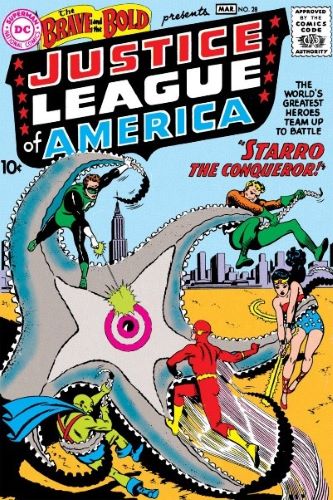
With these new heroes, I am sure Britain is much safer against alien super menaces, not just having to rely on Dan Dare, Jeff Hawke and other space pilots. The question remains whether these heroes will stick around in these pages or disappear as we get more of the American originals arriving?
For now, I will keep reading both the import and homegrown caped crusaders.
Tune in to KGJ, our radio station! Nothing but super hits!

![[June 26, 1966] Justice League of Britain (New British Superhero Comics)](https://galacticjourney.org/wp-content/uploads/2021/06/Superhero-Cover-Image-672x355.jpg)


![[June 12, 1966] Which Way to Outer Space? (New Writings In SF 8)](https://galacticjourney.org/wp-content/uploads/2021/05/New-Writings-in-SF8-Cover-259x372.jpg)



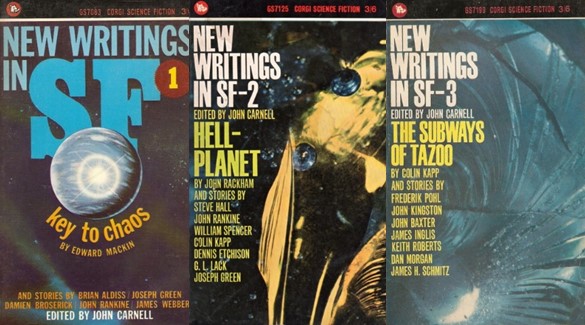
![[May 12, 1966] Equal & Opposite Reaction (<i>The Symmetrians</i>)](https://galacticjourney.org/wp-content/uploads/2021/05/Sym5a.jpg)

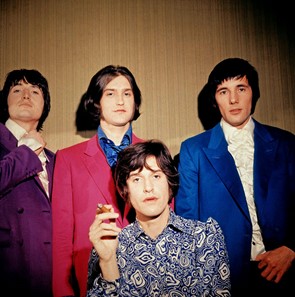

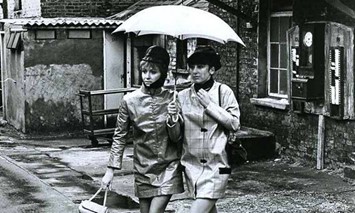

![[May 6, 1966] Blaise-ing Wreckage (<i>Modesty Blaise</i>)](https://galacticjourney.org/wp-content/uploads/2021/04/MB16.jpg)


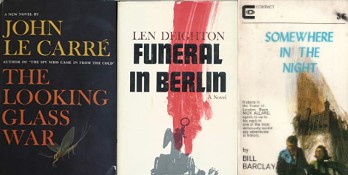


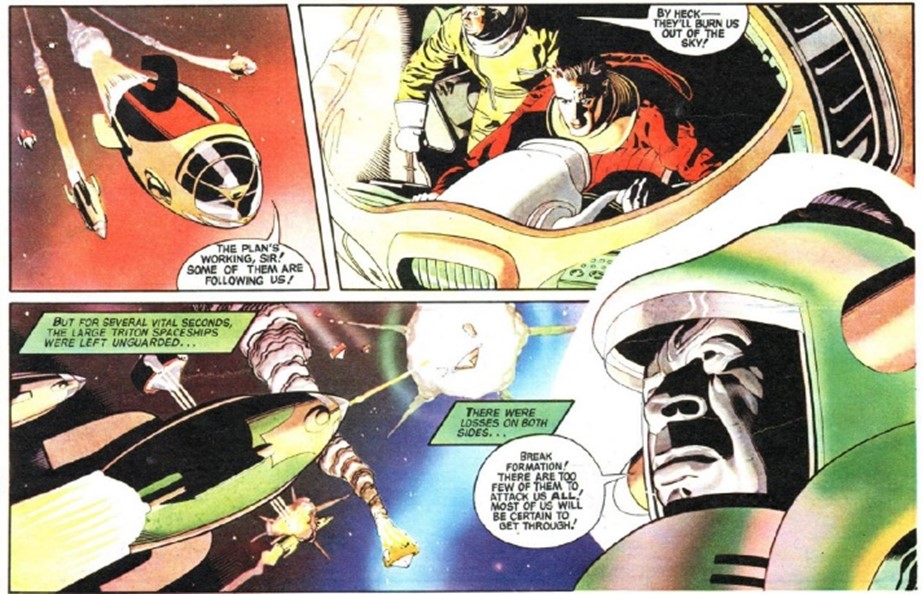

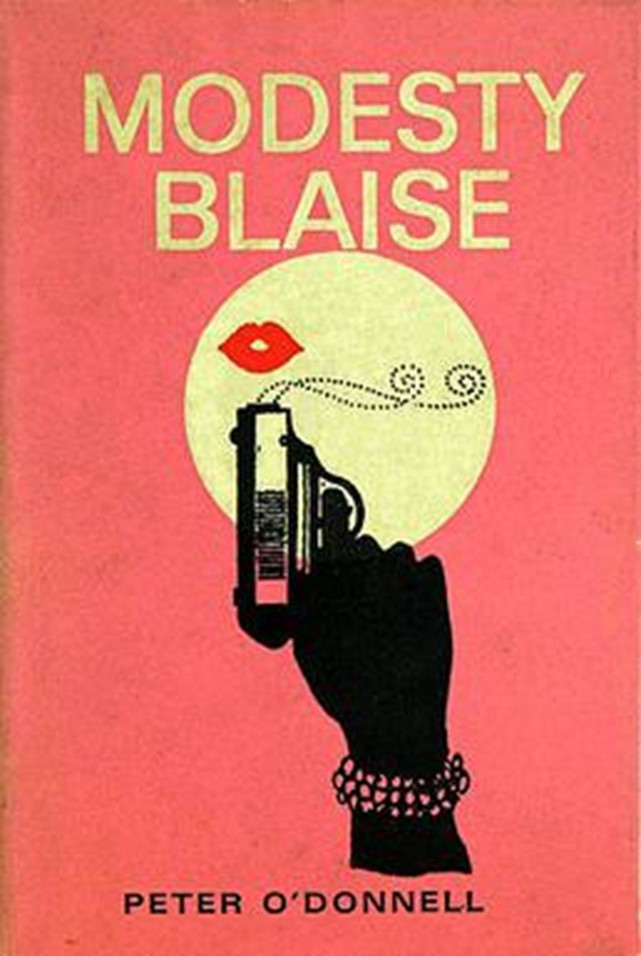
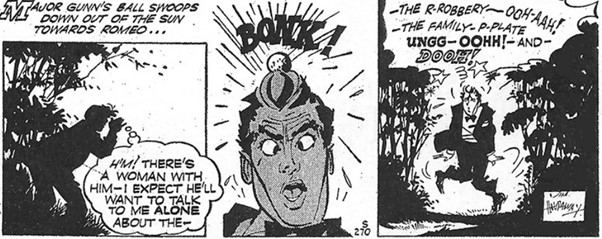

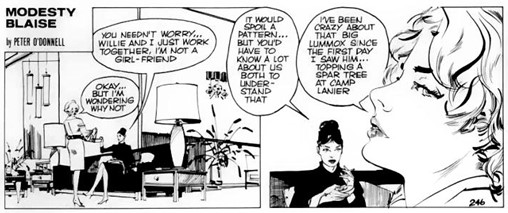


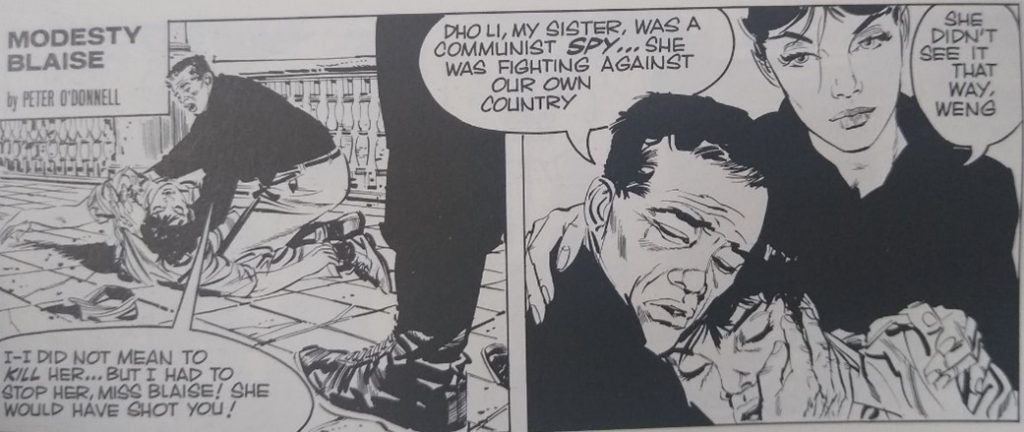






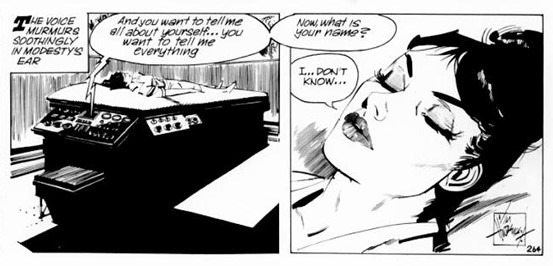
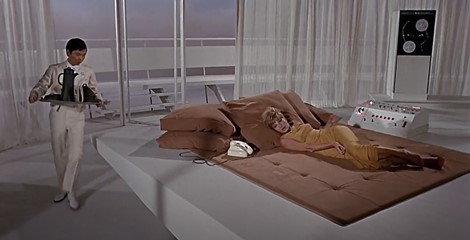
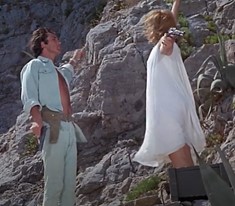
![[April 14, 1966] A New & Clear Bombshell (<i>The War Game</i>)](https://galacticjourney.org/wp-content/uploads/2021/03/War-Game-1a.jpg)
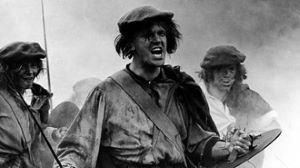
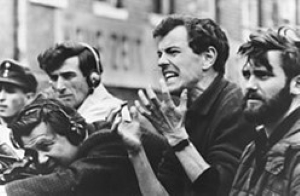
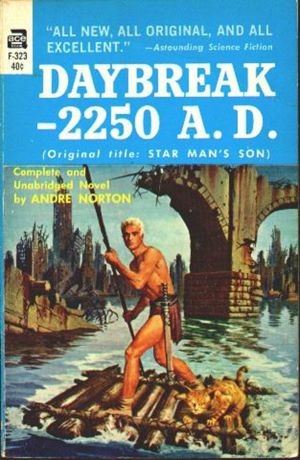
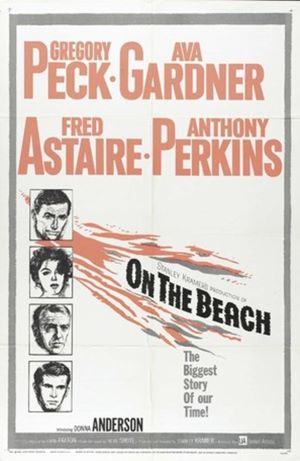
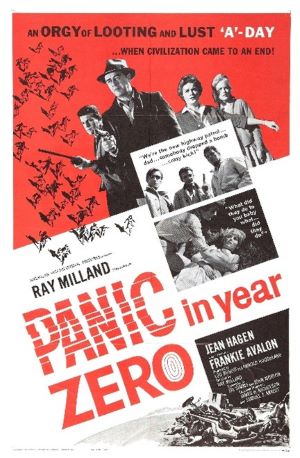

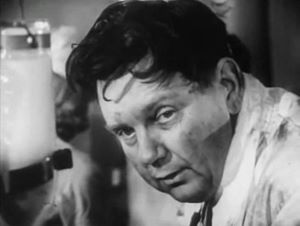
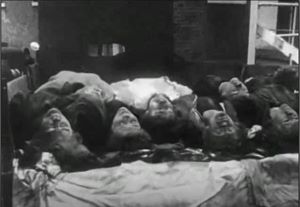

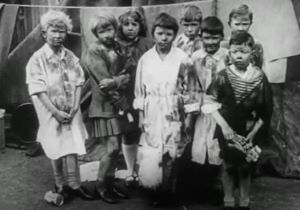

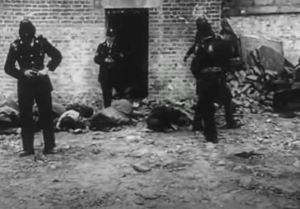
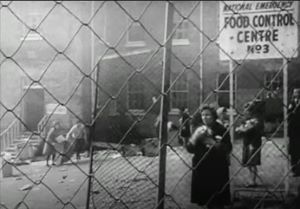

![[March 20, 1966] Two of A Kind (March Galactoscope #2)](https://galacticjourney.org/wp-content/uploads/2021/03/Books.jpg)



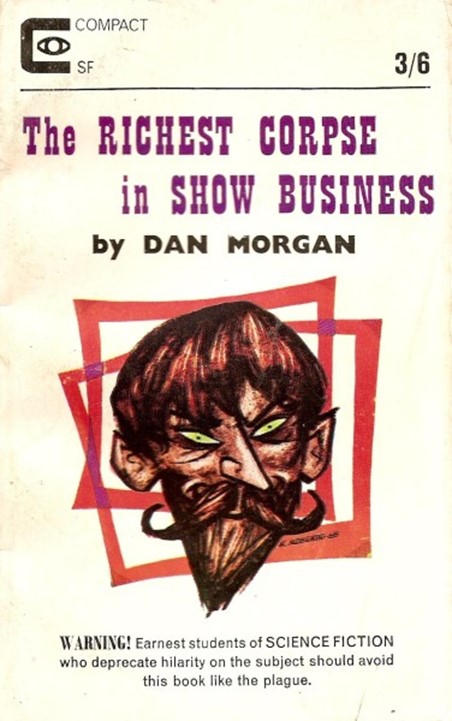


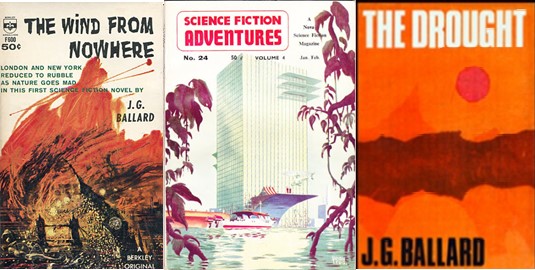

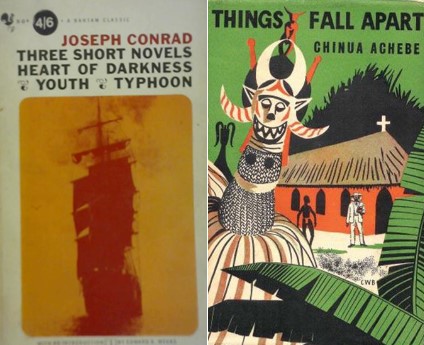
![[March 16, 1966] Sometimes Older is not Better (<i>Mystery and Imagination</i>)](https://galacticjourney.org/wp-content/uploads/2021/03/MI-Titles-672x372.jpg)


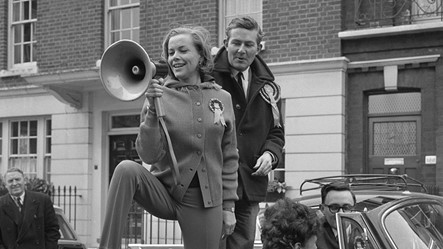
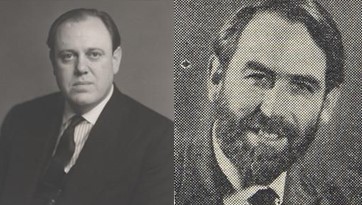
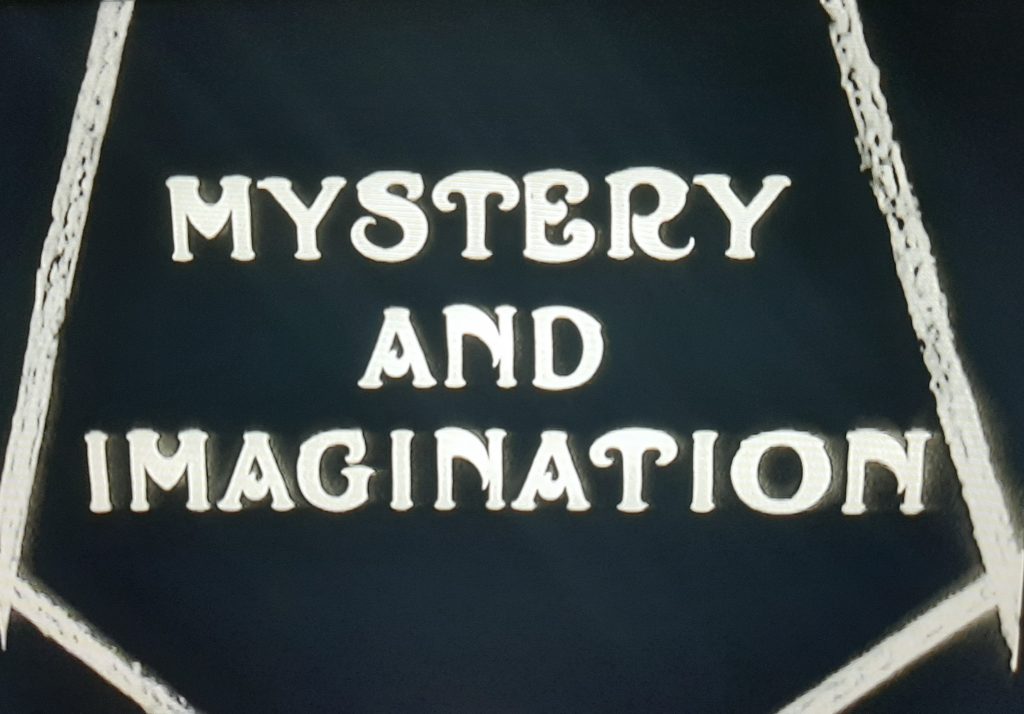
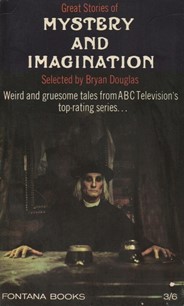
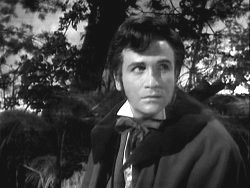
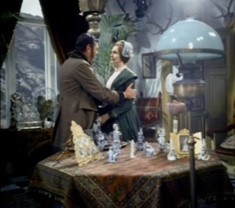

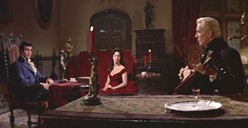
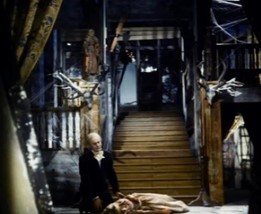
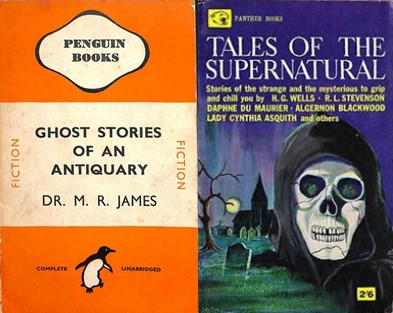
![[February 20, 1966] An Embarrassment of Riches (February Galactoscope #2)](https://galacticjourney.org/wp-content/uploads/2021/02/Montage-Image.jpg)

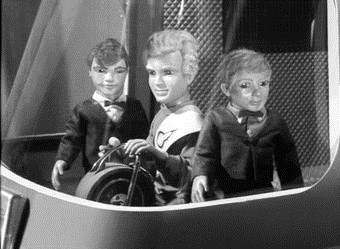

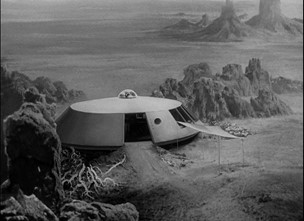
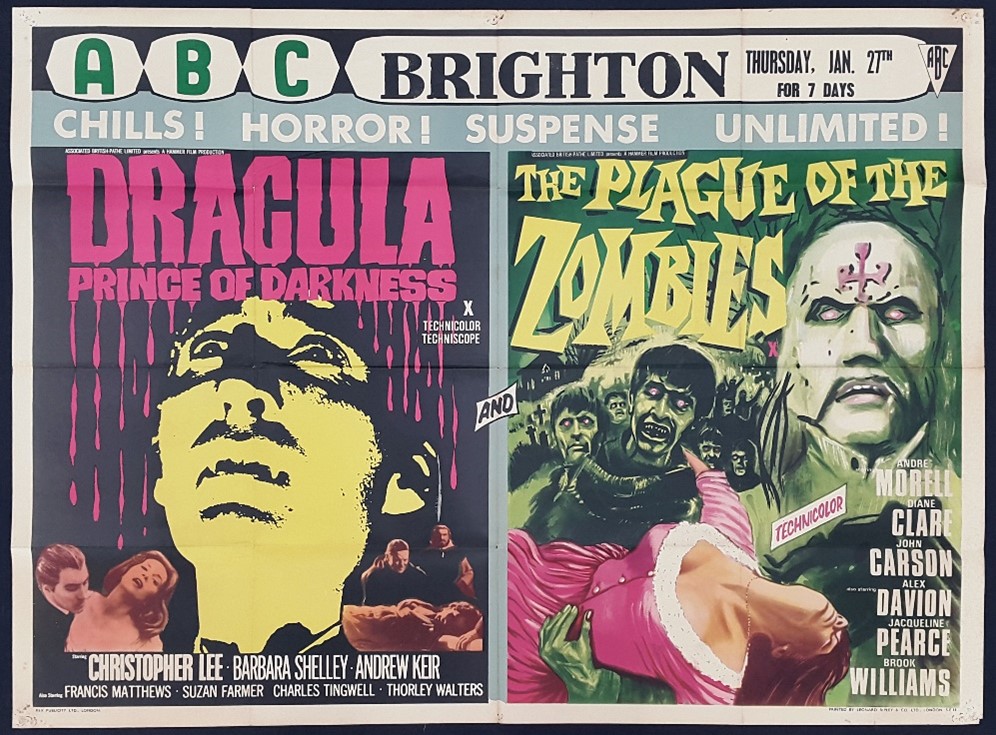
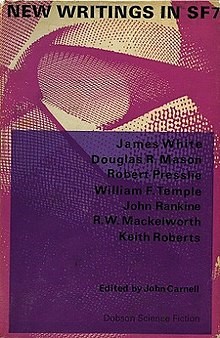


![[January 18, 1966] New Discoveries of the Old (<i>Out of the Unknown</i>)](https://galacticjourney.org/wp-content/uploads/2021/01/Out-of-the-Unknown-Titles.jpg)


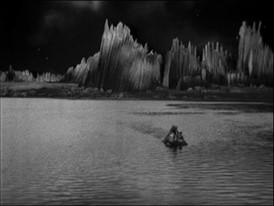

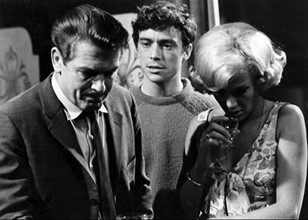
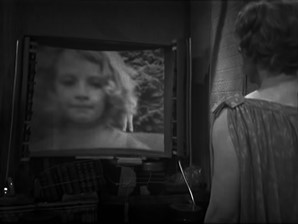

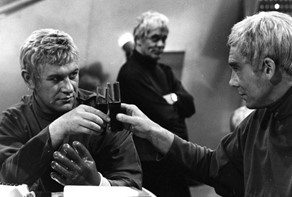

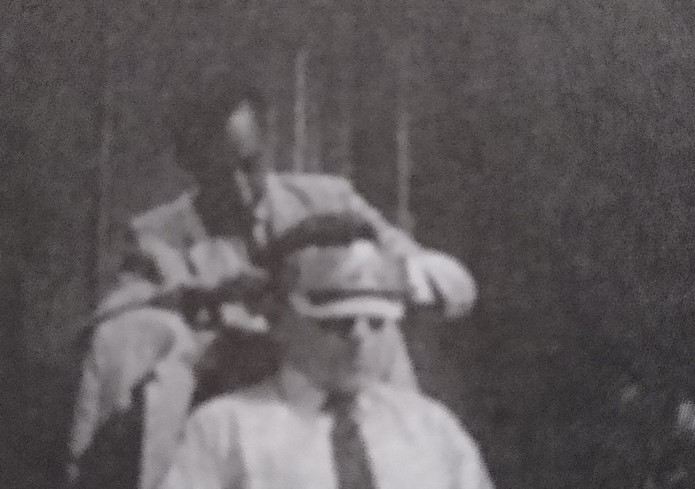




![[January 14, 1966] An Excellent Set of Hammers (<i>Dracula Prince of Darkness & Plague of the Zombies</i>)](https://galacticjourney.org/wp-content/uploads/2021/01/Hammer-Titles.jpg)


